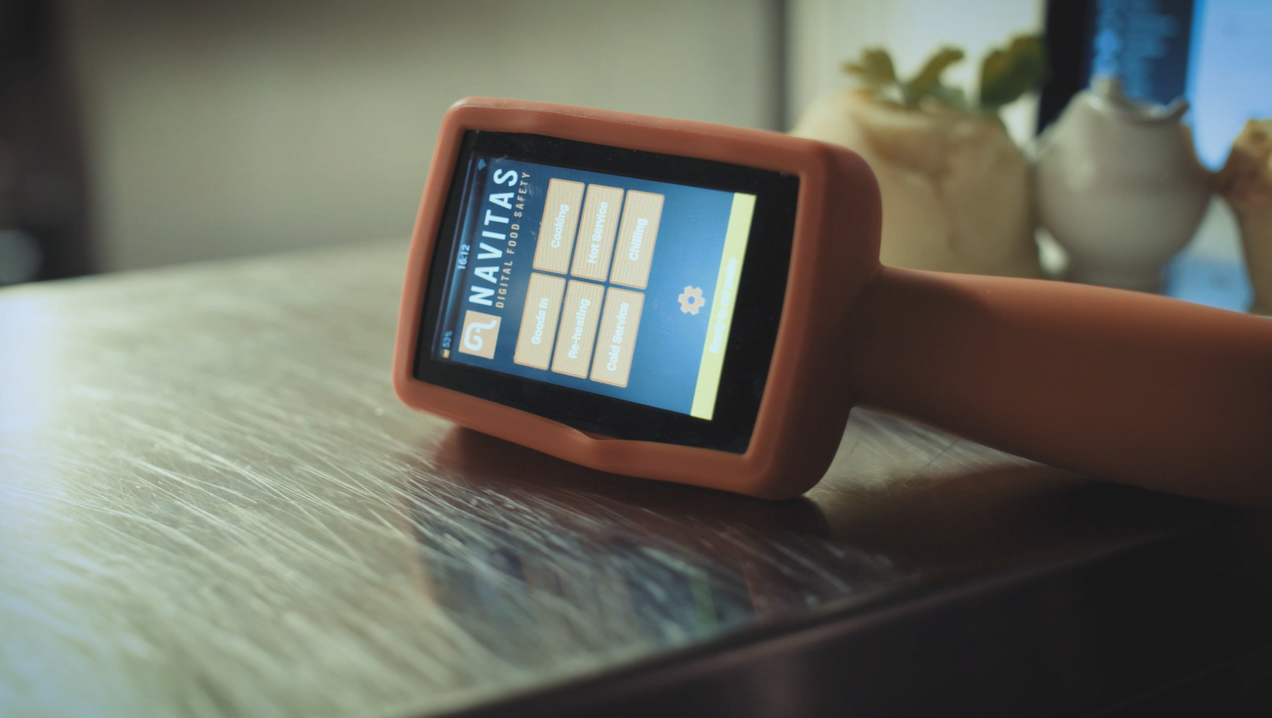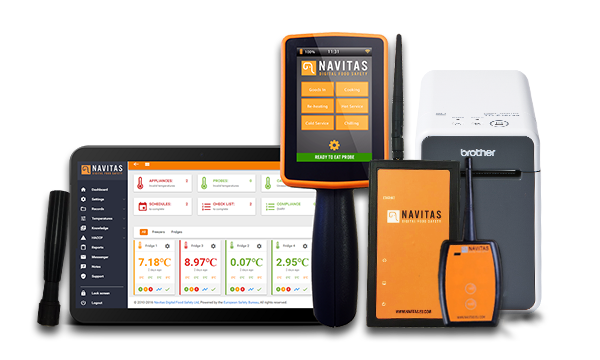“When it comes to food safety, whether we’re talking about stored foods or foods that are being cooked, temperature is absolutely crucial and must be monitored,” says Ben Gardner, CEO of food safety business, Navitas Group. “Safe temperatures must be adhered to as per food safety regulations and failure to do so can cause significant health risks for diners – especially with higher risk ingredients like poultry.
“These safe temperatures are clearly defined within Food Safety regulations as they ensure harmful bacteria either does not grow in stored foods or is killed off in cooked foods.”
According to Ben digital food safety systems have a vital role to play in effective temperature monitoring in any commercial kitchen. The Navitas Digital Food Safety system, for example, includes a Smart Probe to check food temperatures, along with Pods and Hubs to monitor, record and report in real-time fridge and freezer temperatures. Using Navitas software each of these devices feed data back to the Navitas platform.
Here are Navitas’s five essential steps for effective temperature monitoring
- Monitor food temperatures at every stage of the cooking and hot service process using calibrated probe thermometers in order to verify that target temperatures are being achieved.
- Use different probe needles for temperature monitoring different foods to avoid any risk of cross-contamination. Ideally these should comprise Raw, Ready to eat, Infrared and Halal probe needles, each colour coded to prevent mix ups.
- Temperature probing of food should be undertaken not only during storage, cooking and hot-service, but also of deliveries at goods inwards for supplier monitoring. Any food or ingredient not delivered at the correct temperature should be returned to the supplier.
- Use Smart snap-on, snap-off probes to make taking temperatures quick and easy.
- Monitor appliance temperatures regularly and ensure there is a system in place to alert kitchen staff to changes in temperature. Navitas pods automatically report and record temperatures fridges and freezers every 30 minutes.
In addition to temperature monitoring and minimising the risk of stock spoilage, Navitas technology also saves staff time conducting and recording manual temperature checks.
“The cost of stock spoilage whether due to human error or appliance failure can be huge. An average Under-Counter appliance can hold around £100 of stock and a Walk-In appliance more than £4,000 of stock,” explains Ben. “Meanwhile our own industry research suggests that kitchen staff spend around two hours a day taking and recording appliance temperatures manually.”
One hotel to benefit from using the Navitas Digital Food Safety platform is The Residence Inn London Kensington, managed by Cycas Hospitality.
The hotel’s operations team estimates that the system saves staff around 4 ½ hours each week checking food temperatures, nearly an hour each week checking fridge temperatures and over half an hour each week updating cleaning schedules. This equates to over 7,500 hours per year.
The hotel was also rated 5-star by the Environmental Health Officer in unannounced spot-checks. It also passed each quarter’s food safety and brand standards audits, saving a potential £2,000 in re-auditing costs.
Ben adds: “Based on staff time savings, this one hotel alone has already saved around £4,500 per year in exchange for a more compliant system with, most importantly, no reports of food related illnesses since opening at the end of May last year. The Navitas Digital Food Safety system is now deployed across 11 of the Cycas properties with further hotels being rolled out later this year.”
Wayne Androliakos, Cycas Senior Partner-Operations concludes: “When Cycas first met Navitas we were impressed by the promise of a cost-effective automated system that put guests and team safety first, making it instantly accessible to everyone. Its simple-to-use technology has already exceeded our expectations, with the added benefit of freeing up our staff to spend more time making our guests happy, and we are delighted to be the first European hotel company to roll it out across its portfolio.”


